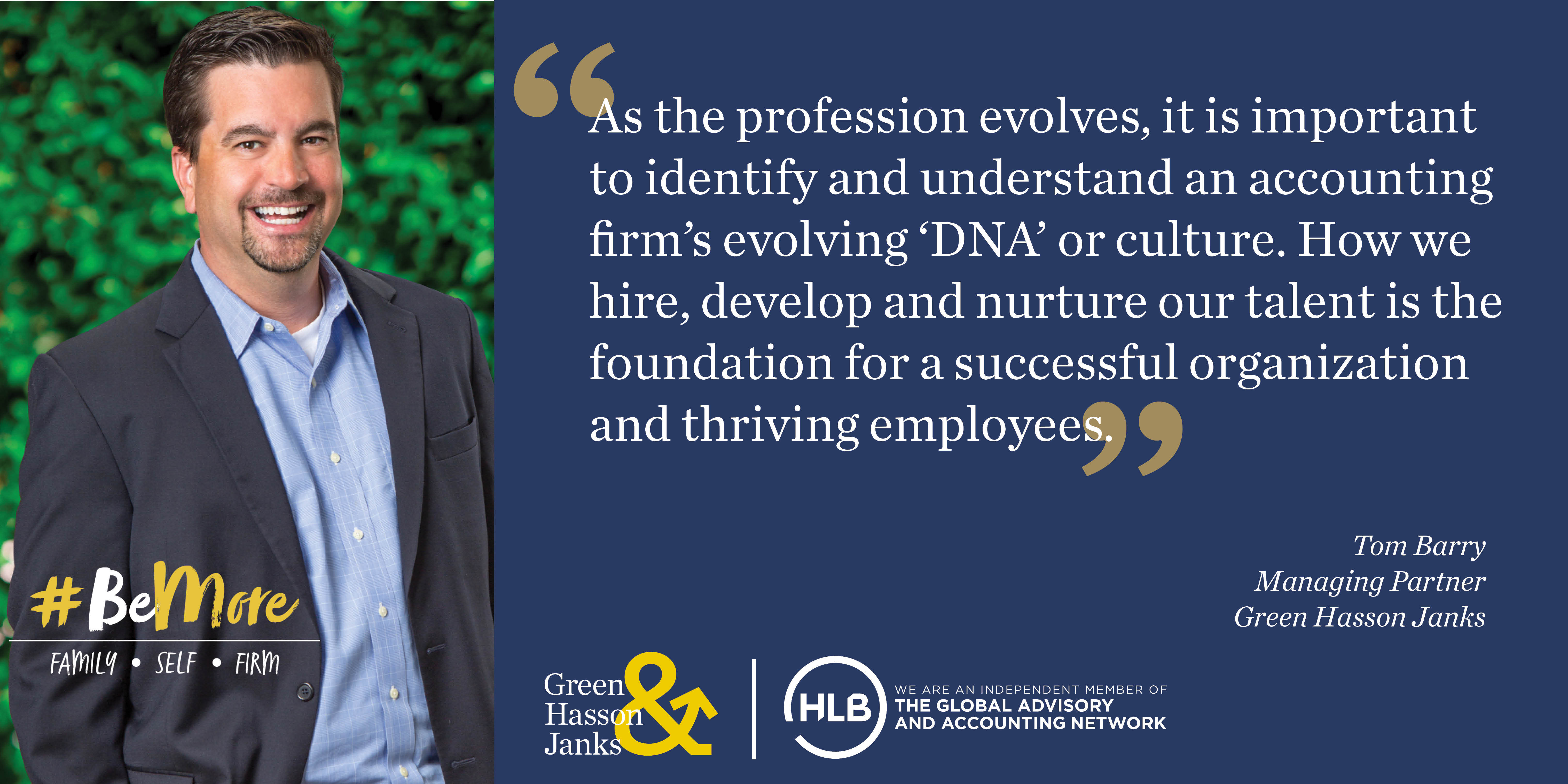Originally published in Small Business Magazine Today

As the profession evolves, it is important to identify and understand an accounting firm’s evolving “DNA” or culture. How we hire, develop and nurture our talent is the foundation for a successful organization and thriving employees.
The Future of Accounting
An accounting firm’s DNA had typically been based on a historical legacy, carried over from an era where the profession looked far different than today – and certainly not reflecting where the profession is headed. Accountants were essentially historians, who were paid to look back at books and records and identify issues and errors. Fast forward, the role of accountant has evolved to that of a trusted advisor, one who can accurately provide clients with insights to illuminate good decisions. With the advancements of technology, big data and the pace of technology commerce, accountants now need to be trusted “futurists.”
The Pace of Technology
Technology evolves exponentially. Each generation of technology speeds up the subsequent generations’ advancements, which causes accelerating change. Therefore the DNA of tomorrow requires accountants to be well versed in their “toolbox”: the computer, and the impact of technology.
Generational Impact
A trend to watch is generational differences, since a majority of a firm’s employees are now in different generations from its leaders. Younger workers want a reason to come to work. They want to feel that they matter, that their work matters and that they are contributing to something bigger than themselves. We hear some older generations complain about the needs of younger workers, but their needs are now the business’s needs, and leadership has an opportunity to create an environment where employees understand their generational differences and work together effectively.
Fighting the War for Employee Diversity of Thought
We are in a war for talent, and the need for people with a consultative mentality makes it even more difficult. Our industry’s client experience is evolving from compliance to an advisory mindset. This is a change that involves aligning ourselves with the client’s needs and helping them reach the right solutions. Making this change takes a new skillset, and recruiting the right talent becomes even more important. Creating teams that bring diversity of thought increases the opportunity to deepen the client experience and cross-pollinate internal learning across different backgrounds and levels of business acumen.
Defining your firm’s DNA includes defining what type of employee you need and want. Having a diverse team is key for creating a consultative approach and developing the ability to ask the right questions. When employees ask questions that come from understanding the client’s culture, strengths, challenges, best practices and industry sector, they are more effective as consultants and advisors and provide a more meaningful client experience. A wider range of people and thought may also lead to new product and service offerings that differentiate your firm and the client experience.
Where We Go From Here
To attract, develop and retain employees that are the right fit, a firm must be able to articulate its culture. Firms that frequently define and redefine their DNA have an advantage.
One way to define your firm’s DNA is by asking the question “What is our Why?” Each firm is different, with values that roll into their own unique Why. When those values are applied to behavior, the result is culture. Each individual also has their own Why, which is a filter through which they make choices, at work and at home, that lead to fulfillment. With this in mind, you can create a much more specific profile of the person that fits your DNA, your Why, your culture. This streamlines the hiring process and aids in retaining and developing our talent, reducing HR cost and supporting employee satisfaction.


